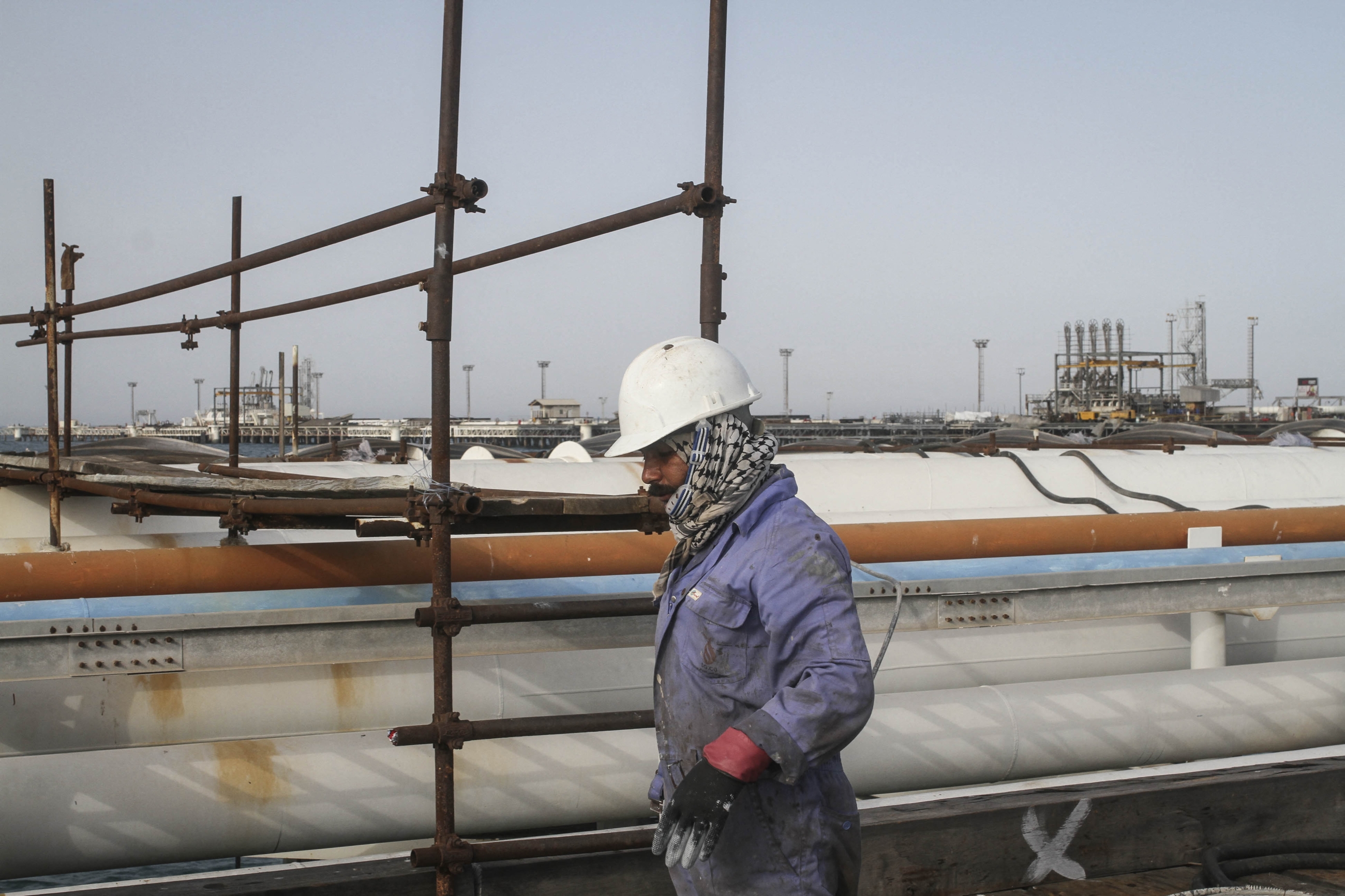US mulling new sanctions on Iran's oil sales to China: Report

The United States is weighing tighter sanctions on Iran's oil sales to China as a way to pressure Tehran to commit to a nuclear deal, US officials and sources familiar with the matter told The Wall Street Journal on Monday.
As multilateral nuclear negotiations with Iran have stalled for weeks, the US is mulling alternative options to encourage Iran to stay at the negotiating table or up the cost of leaving it, the newspaper reported.
One of the options under consideration would reduce Iran's growing crude sales to China, a US official told the newspaper. Under US President Joe Biden, Iran's crude-oil exports, mostly to China, have climbed.
"There is not much left to sanction in Iran's economy," the official said. "Iran's oil sales to China is the prize."
In the plan, the US would take aim at Iran's oil sales to Beijing - Tehran’s main oil client - by targeting shipping networks that help export an estimated one million barrels per day, officials told the Journal.
But the new plan would only go into effect if nuclear talks fail, officials said.
The US would aggressively enforce current sanctions already banning dealings with Iran’s oil and shipping sectors through strong enforcement and legal action, according to the WSJ.
Another option under consideration would be to use diplomatic means to convince China, India and the other top importers of Iranian crude oil to cut their purchases of the commodity, non-oil trades, debt financing and financial transfers, amid mounting concerns that increased sanctions could have unintended consequences and may even encourage Iran to accelerate its nuclear programme.
Republicans and other critics of Biden's Iran policy have said the administration's leniency and lack of enforcement of sanctions have only emboldened Tehran.
Last week, Republican Senator Ted Cruz introduced a bill to sanction Iran's Supreme Leader, Ayatollah Ali Khamenei, and the country's president-elect, Ebrahim Raisi.
Prisoner swap
Former US President Donald Trump withdrew from the multilateral nuclear deal in 2018, imposing a series of escalating and crippling sanctions against Tehran.
Iran initially continued to abide by the deal, but after months of pressing European partners about Washington's behaviour, it began reducing some of its commitments, eventually falling out of compliance.
Now, as nuclear negotiations taking place in Vienna have dragged for several months, Iran says it does not plan on returning to the talks until a new government headed by Raisi takes office in August. The president-elect has also said that Tehran will not agree to the nuclear deal without the lifting of US sanctions first.
Iranian Deputy Foreign Minister Seyed Abbas Araghchi addressed the issue in a series of tweets on Saturday.
"We're in a transition period as a democratic transfer of power is underway in our capital," he tweeted. "Vienna talks must thus obviously await our new administration. This is what every democracy demands."
The US responded to Araghchi's statement, denying that there was an agreement made regarding a potential prisoner swap.
"These comments are an outrageous effort to deflect blame for the current impasse," State Department spokesman Ned Price said.
"We stand ready to return to Vienna to complete work on a mutual return to the JCPOA once Iran has made the necessary decisions."
Meanwhile, Iran-US tensions have also heightened in recent weeks, following reports that Iranian intelligence agents attempted to kidnap Masih Alinejad, a New York-based journalist and campaigner.
The State Department has said that while nuclear negotiations were being viewed diplomatically as an issue separate from such incidents, the international community would likely benefit more broadly following a nuclear accord.
Middle East Eye delivers independent and unrivalled coverage and analysis of the Middle East, North Africa and beyond. To learn more about republishing this content and the associated fees, please fill out this form. More about MEE can be found here.





